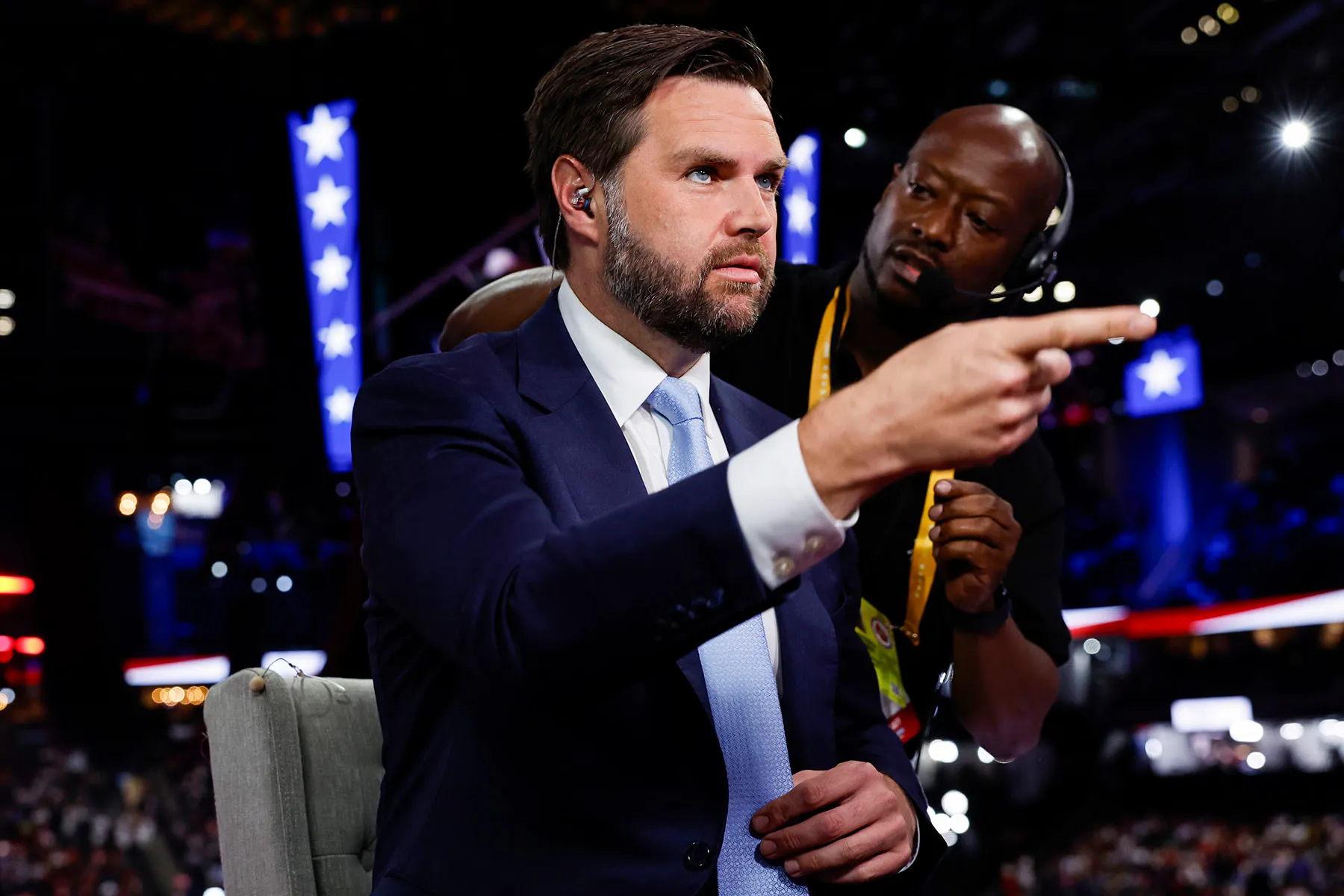JD Vance Launches Senate Campaign in Ohio, Promising Economic Reform
JD Vance, known for his bestselling memoir “Hillbilly Elegy” and subsequent foray into conservative politics, has officially launched his campaign for the U.S. Senate in Ohio. Vance, a former venture capitalist and a prominent voice within the Republican Party, aims to secure the seat currently held by Senator Rob Portman, who announced his retirement earlier this year.
In his announcement, Vance emphasized themes of economic reform and combating what he perceives as a decline in American values and opportunities. He has been vocal about issues affecting working-class Americans, advocating for policies that promote job creation, reduce government regulation, and address challenges related to addiction and family stability.
Vance’s candidacy has sparked both support and criticism. Supporters view him as a fresh voice capable of addressing the concerns of Ohioans, particularly those in rural and economically distressed areas. His background as a native of Middletown, Ohio, resonates with many voters who see him as understanding their struggles firsthand.
However, Vance’s entry into the political arena hasn’t been without controversy. Critics argue that his views on issues such as immigration and social welfare are divisive and out of touch with the broader needs of Ohio’s diverse population. His stance on issues like healthcare and education funding has also drawn scrutiny, with some questioning the depth of his policy proposals beyond broad rhetoric.
As Vance navigates his campaign, he faces a competitive Republican primary field that includes several candidates vying for the party’s nomination. Ohio’s political landscape, which has seen significant shifts in recent years, presents both opportunities and challenges for Vance as he seeks to distinguish himself in a crowded field and position himself as the candidate best suited to represent Ohio’s interests in the Senate.
The outcome of Vance’s campaign will not only impact Ohio’s representation in Congress but also potentially influence national conversations on issues ranging from economic policy to social welfare. With the general election looming, Vance’s ability to articulate a compelling vision for Ohio’s future and navigate the complexities of a modern political landscape will be crucial in determining his political trajectory and the future direction of the Republican Party in Ohio.
JD Vance Criticized for Controversial Remarks on Working Mothers
JD Vance, in his bid for the U.S. Senate representing Ohio, has come under fire for controversial remarks regarding working mothers. The comments, made in the past, resurfaced amidst his campaign, sparking widespread criticism and debate.
Vance, known for his conservative viewpoints and advocacy for traditional family values, has previously expressed sentiments that some interpret as dismissive or critical of working mothers. In his 2016 memoir “Hillbilly Elegy,” he discussed the challenges faced by families in distressed communities, often highlighting the absence of stable parental figures due to economic hardships and societal changes. While his narrative aimed to shed light on these societal issues, critics argue that his remarks could be interpreted as blaming working mothers for societal problems.
The controversy intensified when Vance was quoted in interviews and public appearances discussing the impact of mothers working outside the home on family dynamics and child development. His comments, which some viewed as antiquated or insensitive, sparked backlash from various quarters, including women’s rights advocates and political opponents.
Critics contend that Vance’s remarks fail to acknowledge the economic necessity for many women to work and disregard the contributions of working mothers to their families and communities. They argue that such views overlook the complexities of modern family life and perpetuate outdated gender roles.
In response to the criticism, Vance has defended his statements, asserting that his concern lies with the broader societal challenges faced by working-class families rather than individual choices. He has emphasized the importance of supporting families through economic policies that strengthen job opportunities and family stability.
However, the controversy has raised questions about Vance’s ability to resonate with a diverse electorate, including women voters who may find his comments alienating. His opponents have seized upon the issue, using it to portray Vance as out of touch with the realities and concerns of modern families in Ohio.
As Vance continues his Senate campaign, navigating the fallout from these remarks will be crucial. He faces a competitive primary race and, if successful, will contend in the general election against Democratic challengers. The controversy underscores the challenges of balancing personal views with broader political messaging in a competitive electoral environment.
Vance’s handling of this controversy and his ability to articulate a platform that resonates with a broad spectrum of voters will likely influence his electoral prospects and shape the discourse around gender, work, and family in the political arena.
JD Vance Faces Challenges in Gaining Support from Ohio GOP Establishment
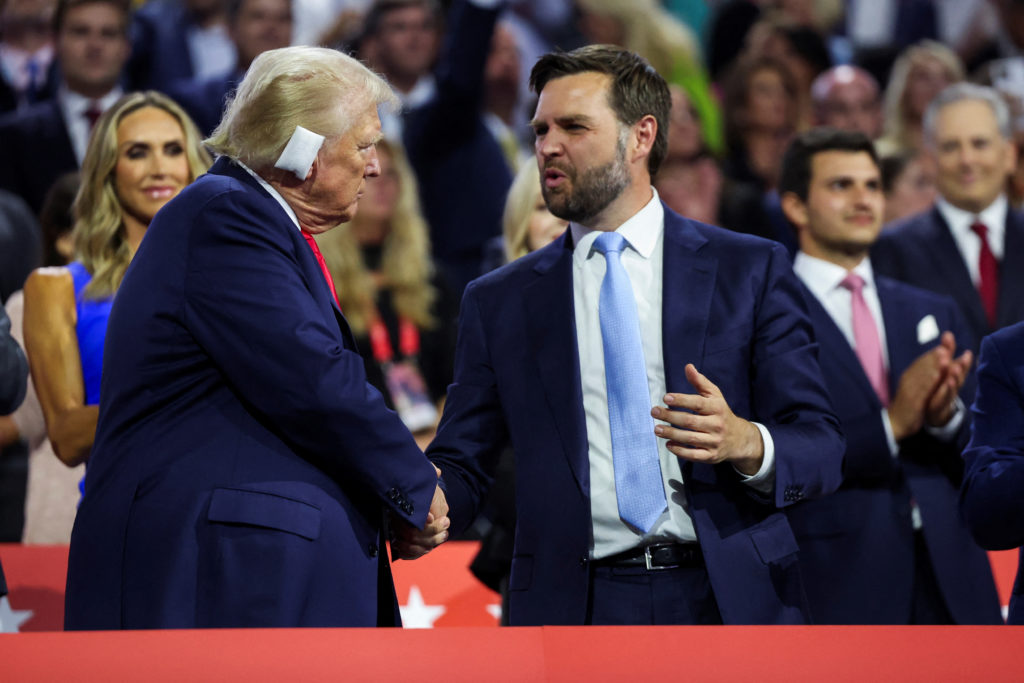
JD Vance, despite his prominence as a conservative figure and author of “Hillbilly Elegy,” faces significant challenges in gaining support from the Ohio GOP establishment in his bid for the U.S. Senate.
Vance’s entry into the Senate race to succeed retiring Senator Rob Portman has stirred a competitive Republican primary field. While Vance has garnered attention for his strong grassroots support and appeal to conservative voters, his candidacy has encountered resistance from some quarters of the Ohio GOP establishment.
One key factor in Vance’s struggle to gain establishment support is his outsider status. Unlike some of his primary opponents who have longstanding ties within Ohio’s political circles, Vance’s background as a former venture capitalist and relatively recent arrival into political activism may raise concerns among traditional party insiders.
Moreover, Vance’s outspokenness on certain issues has sometimes put him at odds with elements of the GOP establishment. His critical stance on certain economic policies, such as corporate welfare, and his advocacy for a more populist approach to economic reform have not always aligned with the more traditional Republican agenda focused on tax cuts and deregulation.
Another point of contention has been Vance’s criticism of certain aspects of conservative orthodoxy, particularly on issues related to trade and economic globalization. His calls for a reevaluation of U.S. trade policies and a more protectionist approach have diverged from the free-market principles often championed by the GOP establishment.
Furthermore, Vance’s past remarks on social issues, such as his controversial comments regarding working mothers, have also contributed to skepticism among some Republican leaders and voters about his ability to appeal broadly across the party’s base.
Despite these challenges, Vance has sought to build bridges within the GOP by emphasizing his commitment to conservative principles and his vision for revitalizing Ohio’s economy and addressing social challenges. He has actively courted support from grassroots activists, conservative media outlets, and donors aligned with his anti-establishment stance.
In navigating these obstacles, Vance’s campaign strategy has focused on mobilizing grassroots support and appealing directly to voters disillusioned with traditional politics. His efforts to position himself as a voice for working-class Ohioans and a critic of entrenched political interests have resonated with a segment of the electorate looking for change.
As the primary election approaches, Vance’s ability to overcome resistance from the GOP establishment and consolidate support among conservative voters will be crucial. His campaign’s success will depend on his capacity to unify disparate factions within the party while maintaining his outsider appeal.
Vance’s candidacy represents a test of whether a populist, anti-establishment message can resonate within the Republican Party in Ohio and beyond. The outcome of the primary will not only shape the future direction of Ohio’s representation in the Senate but also influence broader debates within the GOP about its identity and priorities moving forward.
JD Vance’s Memoir ‘Hillbilly Elegy’ Adapted into Award-Winning Film

JD Vance’s memoir “Hillbilly Elegy,” which gained widespread acclaim and criticism upon its release in 2016, was adapted into a film that premiered on Netflix in 2020. The memoir, subtitled “A Memoir of a Family and Culture in Crisis,” explores Vance’s upbringing in Appalachia and his family’s struggles with poverty, addiction, and the challenges faced by working-class Americans.
Directed by Ron Howard, the film adaptation of “Hillbilly Elegy” starred actors such as Glenn Close and Amy Adams, who received critical acclaim for their performances. The film aimed to capture the essence of Vance’s personal journey and the broader societal issues he confronted growing up in Ohio.
Critically, the adaptation sparked renewed debate and scrutiny over Vance’s portrayal of Appalachian culture and his perspectives on poverty and social mobility. While the memoir was celebrated by some for its candid depiction of blue-collar life and the resilience of its characters, others criticized it for reinforcing stereotypes and oversimplifying complex social issues.
Despite mixed reviews, “Hillbilly Elegy” garnered attention during the awards season, receiving nominations for the Academy Awards and other prestigious accolades. The film’s release coincided with heightened political and cultural divisions in the United States, prompting discussions about class, identity, and the American Dream.
For JD Vance, the adaptation of his memoir into a feature film provided a platform to amplify his voice in national discourse, particularly on issues affecting working-class communities. It also catapulted him into the political spotlight as he considered and eventually launched his Senate campaign in Ohio.
The film adaptation of “Hillbilly Elegy” underscored Vance’s ability to resonate with audiences drawn to narratives of personal resilience and socio-economic challenges. It also highlighted the broader impact of memoirs in shaping public perceptions and influencing policy debates.
As Vance continues to navigate the political arena, his memoir’s adaptation into a film remains a pivotal moment in his career, showcasing both his storytelling prowess and his ability to provoke dialogue on issues at the heart of American society. Whether viewed as a compelling portrayal of American life or a controversial depiction of poverty and cultural identity, “Hillbilly Elegy” in film form continues to leave a lasting impression on audiences and critics alike.
JD Vance Advocates for Economic Revitalization in Appalachian Communities
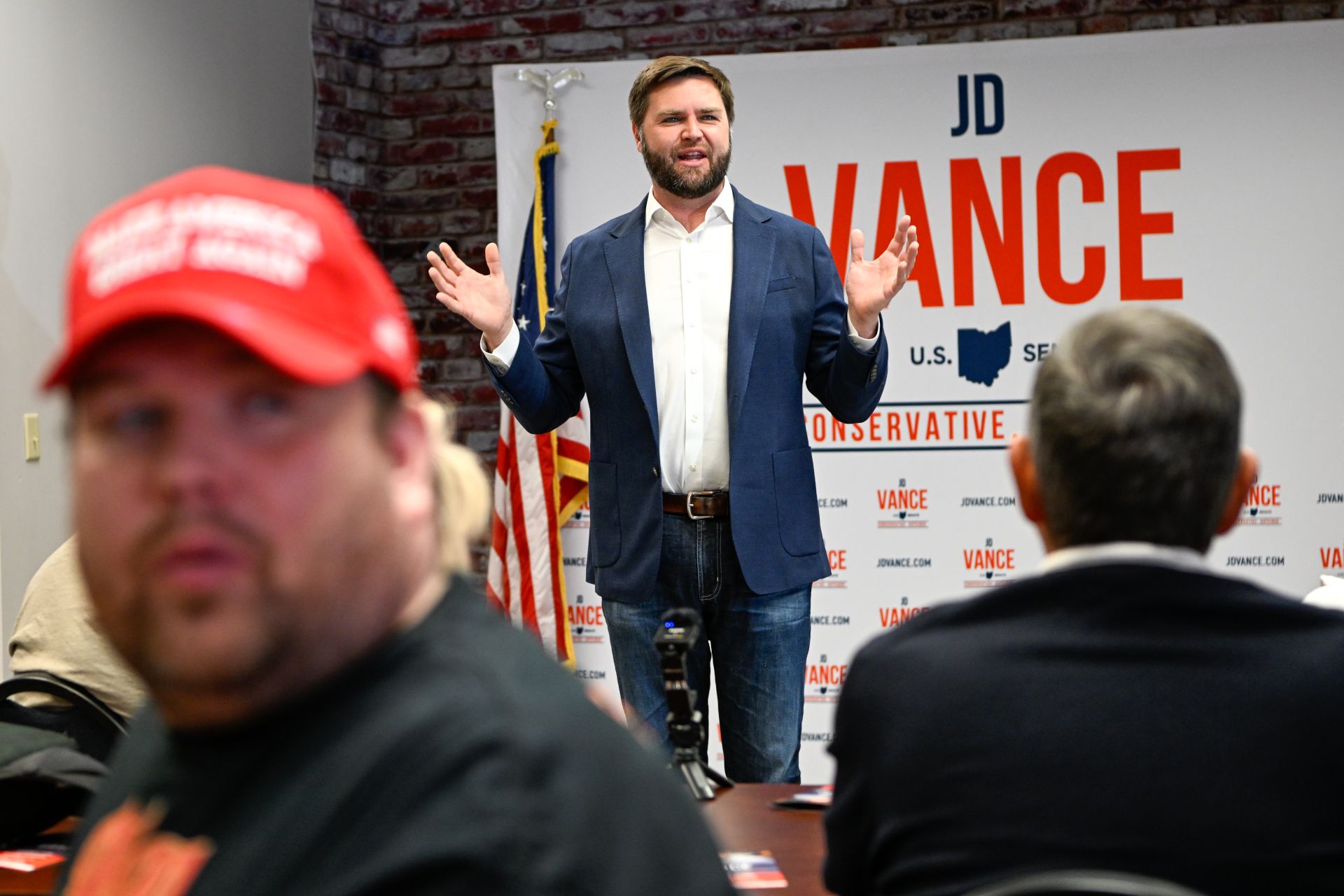
JD Vance, notable for his memoir “Hillbilly Elegy” and his bid for the U.S. Senate in Ohio, has emerged as a vocal advocate for economic revitalization in Appalachian communities. His advocacy stems from his personal experiences growing up in Middletown, Ohio, and witnessing firsthand the economic challenges faced by working-class families in Appalachia.
Vance’s focus on economic revitalization revolves around several key initiatives aimed at addressing the region’s persistent poverty and lack of economic opportunity. Central to his platform is the promotion of policies that encourage job creation, attract investment, and support small businesses in Appalachian areas.
One of Vance’s proposed strategies involves reducing regulatory burdens on businesses, particularly small enterprises that struggle to navigate bureaucratic hurdles. He argues that streamlined regulations and tax incentives could stimulate local economies and create new employment opportunities, thereby reducing dependency on government assistance programs.
In addition to regulatory reform, Vance emphasizes the importance of investing in infrastructure and broadband connectivity in rural Appalachia. He believes that improving infrastructure, such as roads, bridges, and broadband internet access, is crucial for attracting businesses and empowering residents with access to educational and economic opportunities.
Furthermore, Vance advocates for vocational and technical education programs tailored to the needs of Appalachian communities. He argues that equipping residents with practical skills and certifications can help bridge the skills gap and prepare the workforce for jobs in emerging sectors such as advanced manufacturing and renewable energy.
Beyond economic policies, Vance’s advocacy also addresses social issues impacting Appalachian communities, including addiction and family stability. He has been outspoken about the need for comprehensive addiction treatment programs and support services for families affected by substance abuse, which remains a pervasive issue in many Appalachian regions.
Critics, however, have challenged Vance’s approach, arguing that his emphasis on deregulation and market-based solutions may not sufficiently address deep-rooted structural challenges in Appalachia, such as intergenerational poverty and limited access to healthcare and education.
Despite the criticisms, Vance’s commitment to economic revitalization in Appalachian communities has resonated with supporters who see him as a champion for working-class interests and a voice for neglected regions in Ohio. His campaign for the Senate continues to draw attention to these issues, highlighting the complexities of economic development in rural America.
As Vance seeks to broaden his appeal and navigate the political landscape, his advocacy for Appalachian communities reflects broader debates within the Republican Party about the role of government in promoting economic growth and addressing social disparities. The outcome of his campaign will likely influence future policy discussions and efforts to revitalize struggling regions across the United States.
JD Vance Receives Backlash Over Stance on Immigration Policies
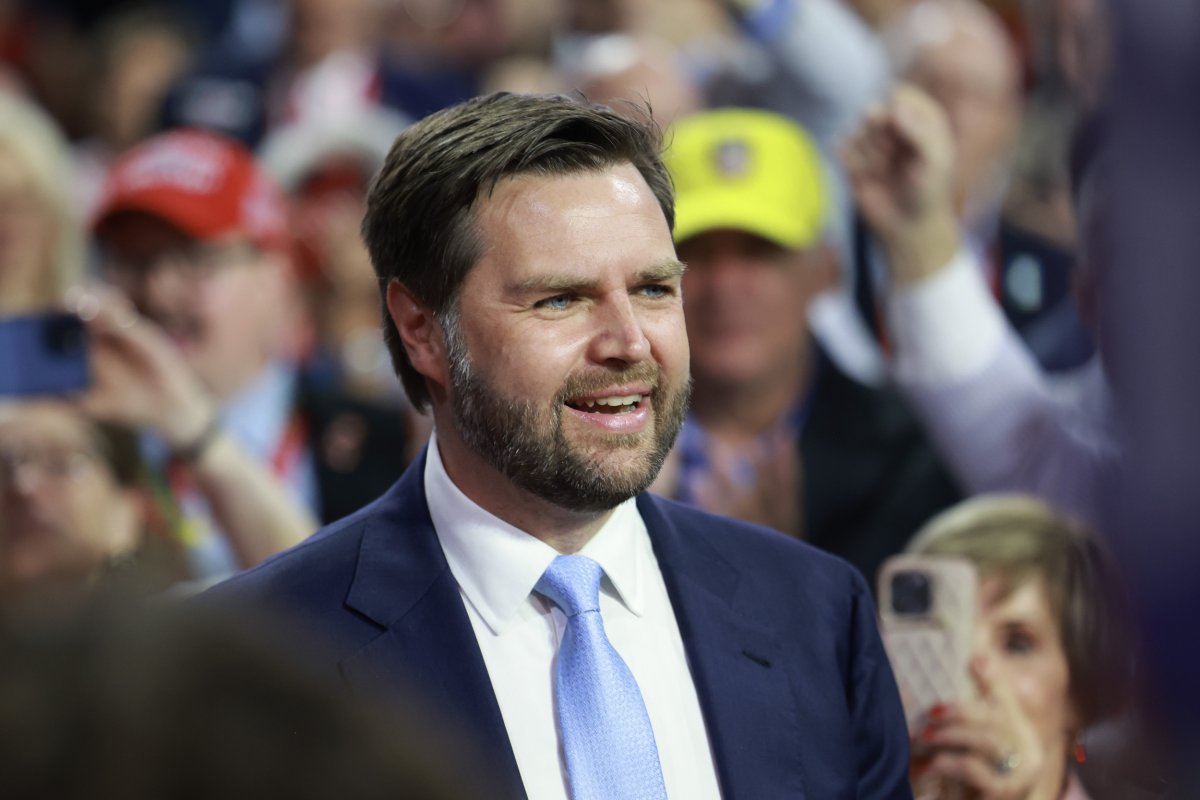
JD Vance, in his pursuit of the U.S. Senate seat in Ohio, has encountered significant backlash over his stance on immigration policies, which has sparked debate and criticism from various quarters.
Vance, known for his conservative viewpoints and advocacy for stricter immigration controls, has been vocal about his concerns regarding illegal immigration and its impact on American workers and national security. He has argued for more stringent border enforcement measures and criticized what he perceives as lenient immigration policies that undermine law and order.
One of Vance’s key positions is his opposition to amnesty for undocumented immigrants, asserting that such measures incentivize illegal immigration and undermine efforts to uphold immigration laws. He has called for reforms that prioritize border security and emphasize merit-based immigration systems that prioritize skilled workers and economic contributors.
Critics of Vance’s immigration stance argue that his views are overly restrictive and fail to account for the contributions of immigrants to the U.S. economy and society. They contend that his rhetoric on immigration enforcement may exacerbate divisions within communities and perpetuate stereotypes about immigrants.
Furthermore, Vance’s critics point to the humanitarian aspects of immigration, advocating for compassionate policies that provide pathways to citizenship for undocumented immigrants who have lived and contributed to American society for years. They argue that rigid enforcement measures without comprehensive immigration reform could harm families and communities.
Vance’s stance on immigration has also drawn scrutiny within the Republican Party, where there is ongoing debate about the balance between border security and maintaining America’s historical identity as a nation of immigrants. Some GOP leaders and strategists believe that adopting more inclusive immigration policies could broaden the party’s appeal to diverse voter demographics.
Amidst the controversy, Vance has defended his positions, framing them as essential to protecting American jobs and ensuring national security. He has sought to align his immigration policies with broader economic and security concerns, arguing that controlled immigration policies are necessary to safeguard American interests.
As Vance continues his Senate campaign, navigating the complexities of immigration policy will remain a critical challenge. His ability to reconcile his conservative base’s priorities with broader public sentiment on immigration reform will likely shape his electoral prospects and influence the national discourse on immigration issues.
Vance’s approach to immigration reflects broader ideological divisions within the Republican Party and underscores the complexities of crafting effective and equitable immigration policies in a diverse and interconnected world. The outcome of his campaign will provide insight into the evolving dynamics of immigration politics in America and its impact on future policy decisions.
JD Vance’s Political Ambitions Spark Debate Over Populism in Republican Party
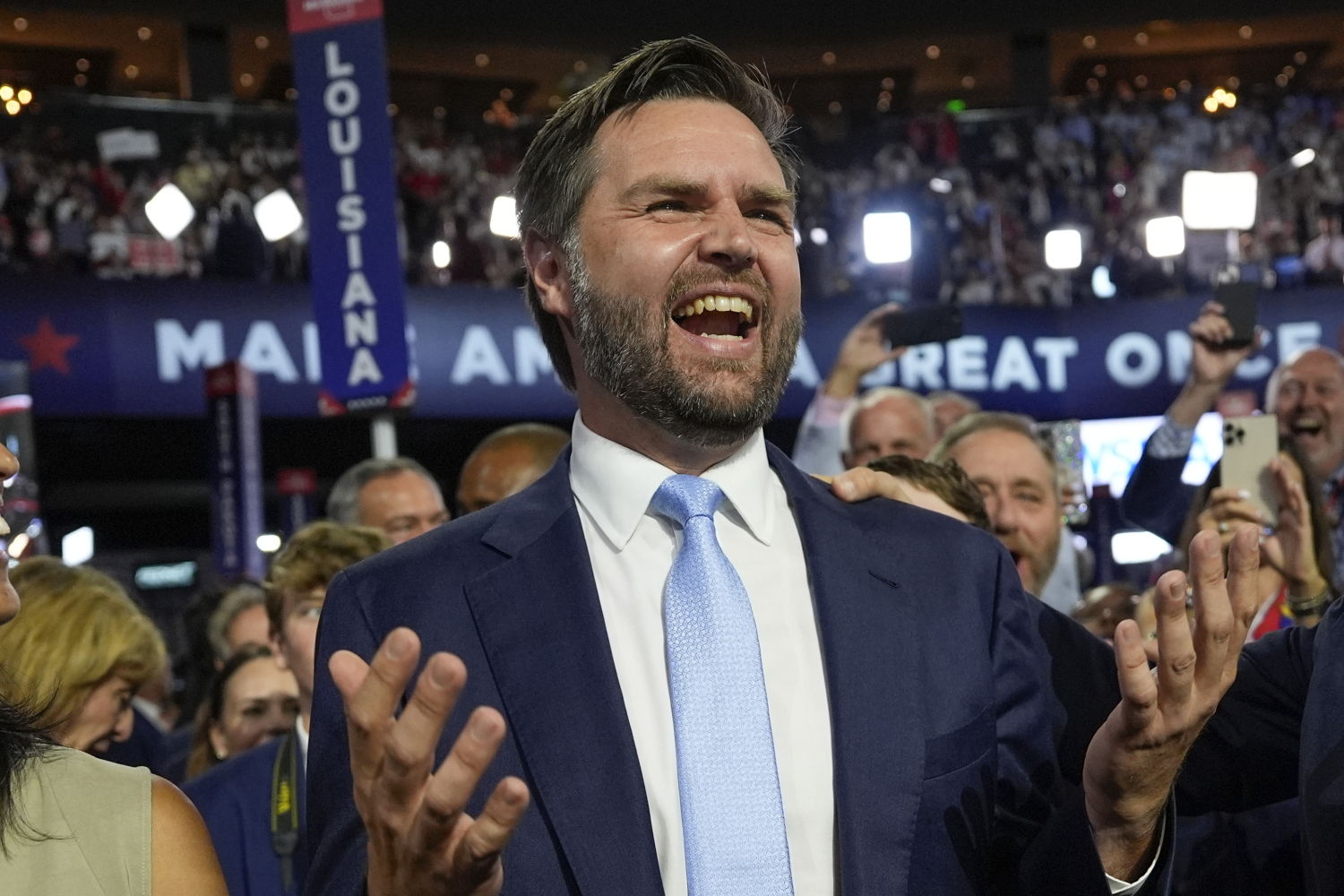
JD Vance’s political ambitions have ignited a lively debate over populism within the Republican Party, highlighting broader ideological shifts and tensions within conservative circles.
Vance, known for his bestselling memoir “Hillbilly Elegy” and subsequent advocacy for working-class issues, has positioned himself as a populist voice within the GOP. His campaign for the U.S. Senate in Ohio has emphasized economic nationalism, skepticism of globalism, and a critique of corporate interests that he argues have neglected American workers.
Central to Vance’s populist message is his criticism of elite institutions and political establishments, which he portrays as disconnected from the concerns of everyday Americans. He has called for reforms that prioritize the interests of working-class families, including policies aimed at revitalizing American manufacturing, reducing dependency on foreign imports, and promoting job creation in struggling communities.
Vance’s populism contrasts with traditional Republican orthodoxy on certain issues, such as trade and economic policy. While mainstream Republicans have historically championed free-market principles and deregulation, Vance’s platform incorporates elements of economic protectionism and government intervention to support domestic industries.
Critics within the Republican Party argue that Vance’s brand of populism risks alienating more moderate voters and could undermine the party’s appeal in diverse and suburban districts. They contend that his anti-establishment rhetoric and nationalist policies may overshadow broader conservative principles of limited government and free enterprise.
Furthermore, Vance’s populist agenda has sparked debate over the future direction of the GOP in a post-Trump era. His emphasis on economic nationalism and cultural conservatism resonates with segments of the party’s base that prioritize issues like immigration reform and social values. However, it also highlights divisions between populist factions and traditional conservatives who advocate for a more inclusive and globally engaged approach.
Amidst these debates, Vance’s candidacy represents a test case for whether populism can sustain its influence within the Republican Party beyond the Trump presidency. His ability to attract support from working-class voters disillusioned with establishment politics could reshape the party’s electoral coalition and influence its policy agenda moving forward.
Vance’s critics and supporters alike acknowledge the significance of his campaign in shaping the future trajectory of the Republican Party. His success or failure in the Senate race will likely influence intra-party dynamics, policy debates, and electoral strategies leading up to future elections.
Vance’s embrace of populism underscores the evolving nature of conservative politics in America, where issues of economic inequality, cultural identity, and national sovereignty continue to shape political discourse. The outcome of his campaign will provide valuable insights into the enduring appeal and challenges of populist movements within the Republican Party and their impact on American political landscape.
FAQs
Who is JD Vance?
JD Vance is a prominent conservative author, venture capitalist, and political figure. He gained widespread recognition for his memoir “Hillbilly Elegy,” which explores his upbringing in Appalachia and the challenges faced by working-class Americans.
What is JD Vance known for?
JD Vance is best known for his memoir “Hillbilly Elegy,” which became a bestseller and was later adapted into a film. He is also known for his advocacy on issues such as economic revitalization, immigration reform, and cultural conservatism.
Is JD Vance running for office?
Yes, JD Vance is running for the U.S. Senate seat in Ohio. He announced his candidacy following the retirement of Senator Rob Portman.
What are JD Vance’s political views?
JD Vance espouses conservative political views, including support for economic nationalism, skepticism of globalism, and a focus on issues affecting working-class Americans. He has been vocal on topics such as immigration reform, economic policy, and social issues.
What controversies has JD Vance been involved in?
JD Vance has faced criticism for his comments on issues such as immigration, working mothers, and his stance on various economic policies. His positions have sparked debate within both conservative and broader political circles.
Has JD Vance held political office before?
No, JD Vance has not held elected political office before. His Senate campaign in Ohio marks his first major bid for public office.
How has JD Vance’s background influenced his political views?
JD Vance’s upbringing in Appalachia, as detailed in “Hillbilly Elegy,” has deeply influenced his political views and advocacy for issues affecting marginalized and working-class communities. His experiences inform his perspectives on economic policy, social mobility, and cultural identity.



